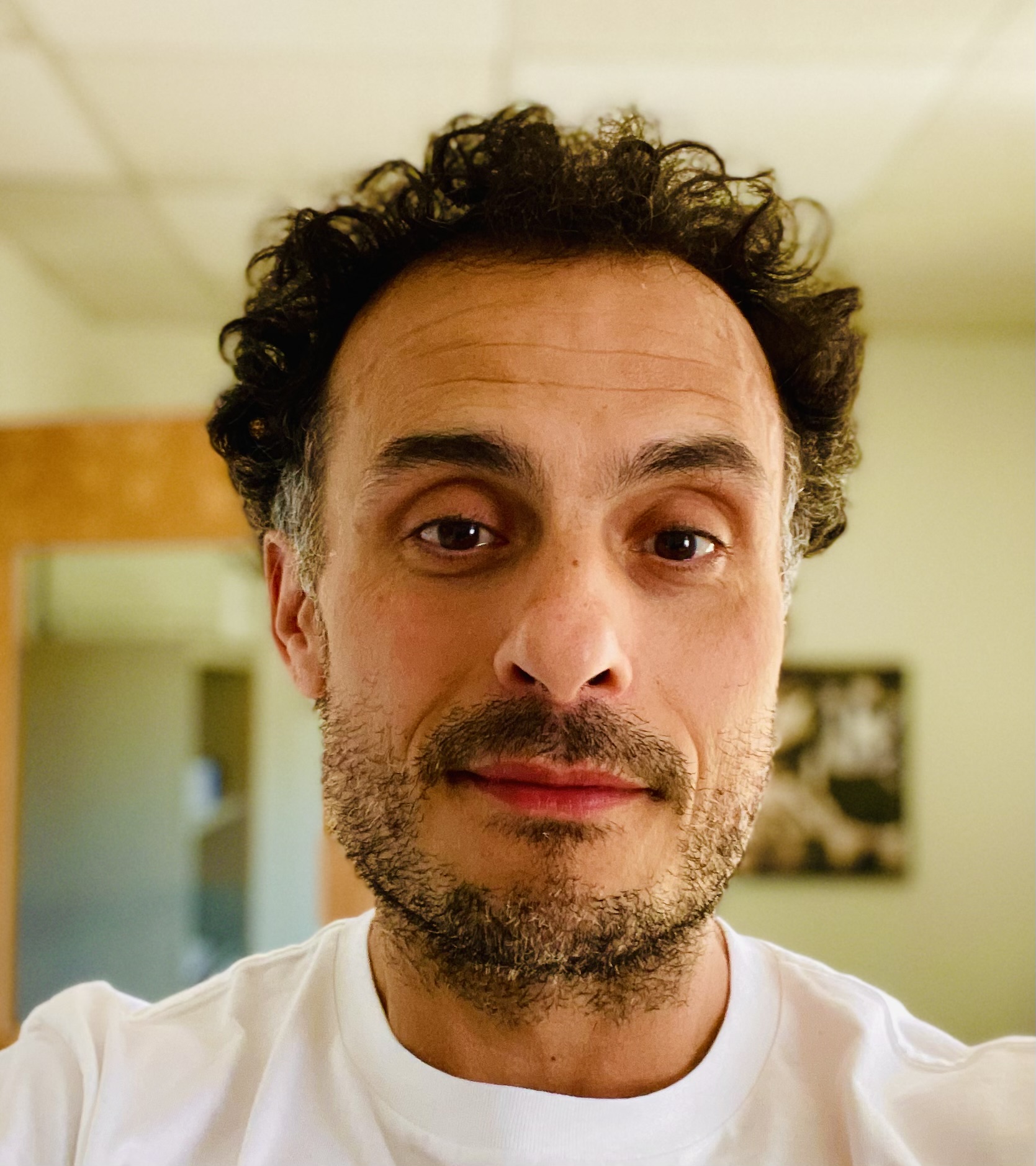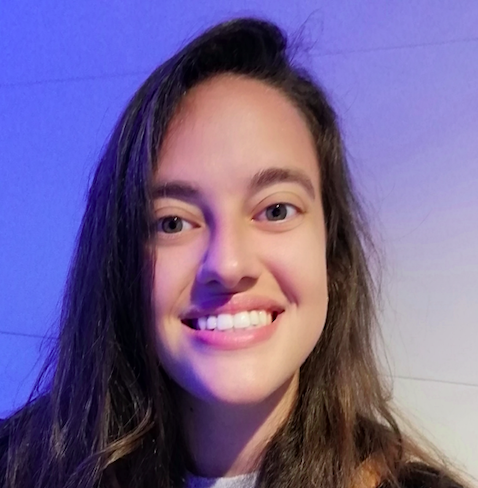Research in the Garcia-Marcos Lab aims to understand the mechanisms and consequences cell communication via heterotrimeric G-proteins (Gαβγ) because they represent major intracellular hubs of signaling with very direct biomedical relevance. The established dogma is that these G-proteins are activated by G-protein coupled receptors (GPCR) present at the surface of eukaryotic cells. GPCRs are the largest family of druggable targets in the human genome. From a biological standpoint, they mediate a large fraction of all transmembrane signaling in our body, including responses triggered by every major neurotransmitter and by two-thirds of hormones. Biomedically, they stand out as prominent pharmacological targets for many diseases, with an estimated market value of hundreds of billions of dollars per year.
Despite the clear importance of GPCR and the G-proteins they activate in biology and biomedicine, there is a large gap in knowledge about alternative and complementary mechanism by which G-proteins are regulated. Our laboratory is recognized for leading efforts in the discovery and characterization of new components of the G-protein regulatory network that exert a profound impact of cellular communication in health and disease. Our ongoing work has direct implications in cancer, embryonic development defects, and neurological disorders.
To achieve our goals, we use a multi-scale approach, in which we integrate information from interrogating signaling at the molecular, cellular, and organismal level. For this, biochemistry, cell biology, and genetics are combined in various experimental systems, from purified proteins, to cultured cells, to different model organisms (mice, frogs, zebrafish). We also have interest in the development of novel tools, like optical biosensors to detect signaling activity in cells, or chemogenetic/ optogenetic tools, which use bioinert chemicals or light to trigger cell responses on demand.
Postdoctoral positions available.
Laboratory members
Sarah Kornfeld – Undergraduate Student
Pere Cabus –
Undergraduate Student
Ria Shah –
Undergraduate Student
Representative Publications
RESEARCH ARTICLES
- Janicot R, Maziarz M, Park J-C, Zhao J, Luebbers A, Green E, Philibert CE, Zhang H, Layne MD, Wu JC, Garcia-Marcos M. Direct interrogation of context-dependent GPCR activity with a universal biosensor platform. Cell. 2024 Feb 16:S0092-8674(24)00065-5. doi: 10.1016/j.cell.2024.01.028. PMID: 38412860
- Park J-C, Luebbers A, Dao M, Semeano A, Nguyen AM, Papakonstantinou MP, Broselid S, Yano H, Martemyanov KA, Garcia-Marcos M. Fine-tuning GPCR-mediated neuromodulation by biasing signaling through different G-protein subunits. Molecular Cell. 2023. Jun 22:S1097-2765(23)00428-8. doi: 10.1016/j.molcel.2023.06.006. PMID: 37390816
- Zhao J, DiGiacomo V, Ferreras-Gutierrez M, Dastjerdi S, de Opakua AI, Park JC, Luebbers A, Chen Q, Beeler A, Blanco FJ, Garcia-Marcos M. Small-molecule targeting of GPCR-independent non-canonical G protein signaling in cancer. Proceedings of the National Academy of Sciences. 2023. May 2;120(18):e2213140120. PMID: 37098067
- Marivin A, Ho RX, Garcia-Marcos M. DAPLE orchestrates apical actomyosin assembly from junctional polarity complexes. J Cell Biol. 2022 May 02; 221(5). PMID: 35389423
- Garcia-Marcos M. Complementary biosensors reveal different G-protein signaling modes triggered by GPCRs and non-receptor activators. eLife. 2021 Mar 31;10:e65620. PMID: 33787494
- Garcia-Marcos M, Parag-Sharma K, Marivin A, Maziarz M, Luebbers A, Nguyen LT. Optogenetic activation of heterotrimeric G-proteins by LOV2GIVe, a rationally engineered modular protein. Elife. 2020 Sep 16;9:e60155. doi: 10.7554/eLife.60155. PMID: 32936073
- Maziarz M, Park J-C, Leyme A, Marivin A, Garcia-Lopez A, Patel PP, Garcia-Marcos M. Revealing the Activity of Trimeric G-proteins in Live Cells with a Versatile Biosensor Design. Cell: published:July 06, 2020. DOI:https://doi.org/10.1016/j.cell.2020.06.020
- DiGiacomo V, Maziarz M, Luebbers A, Norris JM, Laksono P, Garcia-Marcos M. Probing the mutational landscape of regulators of G Protein signaling proteins in cancer. Science Signaling. 2020 Feb 4;13(617). pii: eaax8620. PMID: 32019900.
- Marivin A, Morozova V, Walawalkar I, Leyme A, Kretov DA, Cifuentes D, Dominguez I, Garcia-Marcos M. GPCR-independent activation of G proteins promotes apical cell constriction in vivo. Journal of Cell Biology. 2019; May 6;218(5):1743-1763. PMID: 30948426.
- Leyme A, Marivin A, Maziarz M, DiGiacomo V, Papakonstantinou MP, Patel PP, Blanco-Canosa JB, Walawalkar I, Rodriguez-Davila G, Dominguez I, Garcia-Marcos M. Specific inhibition of GPCR-independent signaling by a rationally engineered protein. Proceedings of the National Academy of Sciences. 2017 Nov 28;114(48):E10319-E10328. PMID: 29133411
- de Opakua AI, Parag-Sharma K, DiGiacomo V, Merino N, Leyme A, Marivin A, Villate M, Nguyen LT, de la Cruz-Morcillo MA, Blanco-Canosa JB, Ramachandran S, Baillie GS, Cerione RA, Blanco FJ, Garcia-Marcos M. Molecular mechanism of Gαi activation by non-GPCR proteins with a Gα-Binding and Activating motif. Nature Communications. May 18;8:15163. PMID: 28516903
- Marivin A., Leyme A., Parag-Sharma K., DiGiacomo V., Cheung A.Y., Nguyen L.T., Dominguez I. Garcia-Marcos M. Dominant negative Gα subunits as a novel mechanism of trimeric G protein signaling dysregulation in human disease. Science Signaling. Apr 12;9(423):ra37. PMID: 27072656.
REVIEWS
- Ghosh P, Garcia-Marcos M. Do All Roads Lead to Rome in G-Protein Activation? Trends in Biochemical Sciences. 2019 Nov 18. pii: S0968-0004(19)30211-7. PMID: 31753703.
- DiGiacomo V, Marivin A, Garcia-Marcos M. When Heterotrimeric G Proteins Are Not Activated by G Protein-Coupled Receptors: Structural Insights and Evolutionary Conservation. 2018; Jan 23; 57(3):255-257. PMID: 29035513.
- Garcia-Marcos M., Ghosh P., Farquhar M.G. GIV/ Girdin transmits signals from multiple receptors by triggering trimeric G protein activation. Journal of Biological Chemistry. 2015. Mar 13;290(11):6697-704. PMID: 25605737.
Complete list can be found at BU Profiles




